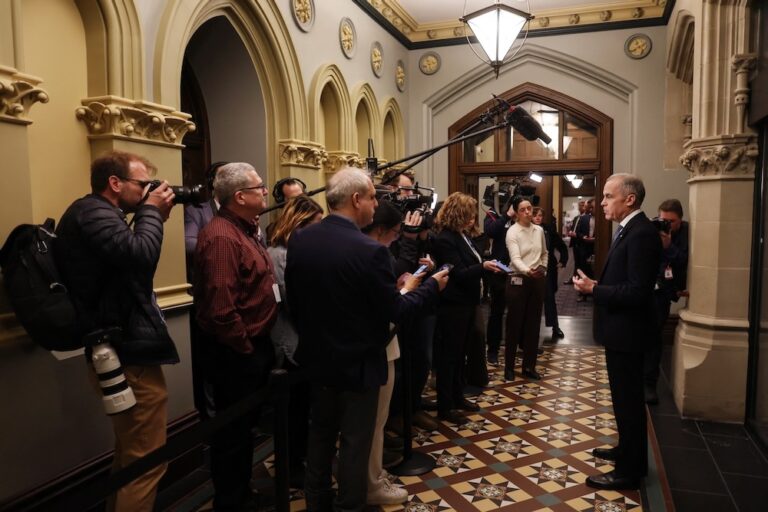The Canadian Committee to Protect Journalists (CCPJ) has been investigating allegations that the London Police may have attempted to impede the work of London, Ontario journalist Joseph Couture and other members of the media investigating the story behind the child pornography probe, Project Guardian. Couture has taped evidence by some of the young men he […]
The Canadian Committee to Protect Journalists (CCPJ) has been
investigating allegations that the London Police may have
attempted to impede the work of London, Ontario journalist Joseph
Couture and other members of the media investigating the story
behind the child pornography probe, Project Guardian. Couture has
taped evidence by some of the young men he interviewed for a
Canadian Broadcasting Corporation (CBC) radio programme who say
they were questioned by the police and berated for their
participation in the show. In addition, Couture says that while
he was interviewing a witness in a restaurant, the police stopped
the interview and escorted out the man.
In a 11 March article in the “Globe & Mail”, the reporter writes
that a Project Guardian witness “Paul” told him “the police have
visited him on several occasions after he’s met with Mr.
Couture…. The cops appear to know what they’ve talked about….
Paul says the police consistently warn him to stay away from Mr.
Couture, and after their most recent visit said, `stay away from
him. He’s nothing but trouble, and he’s going to get in trouble
himself.'” Couture’s lawyer has also received similar warnings.
In an earlier incident, Couture’s house was surrounded by police
cruisers and a canine unit late at night on 12 October 1994. The
journalist reports that the police claimed to have been
investigating a stolen car that was parked in his driveway. On 20
October, Couture says received a call on his unlisted cell phone
from a woman who wanted to personally deliver a pre-paid package
from a magazine and video company. He refused, saying he had not
ordered it. The CBC was unable to track down the company. Two
days later, two men were arrested on pornography charges in what
appears to be a sting operation.
The CCPJ contacted the London Police to obtain a response to some
of these allegations and to find out whether they were
investigating Couture. London Public Information Officer, Sgt.
Jack Churney, would neither confirm nor deny the existence of an
investigation, although he suggested it was possible the Crown
Attorney could press charges on the basis of obstruction of
justice. The CCPJ has conferred with a lawyer who said that there
is no basis for charging Couture with obstruction of justice.
The CCPJ wrote to Chief Julian Fantino in a further attempt to
verify the above alleged incidents. In a letter of 27 January,
Chief Fantino, without answering the questions, replied, “At the
risk of dignifying Mr. Couture’s gratuitous rhetoric please be
advised that Mr. Couture quite properly should be concerned about
his relationship with and involvement in the Project Guardian
investigation; involvement which, in due course, will be
officially and appropriately addressed.” Fantino has refused to
discuss the matter further with the CCPJ.
In the “Globe & Mail” article, Chief Fantino is again quoted
threatening Couture. He said, “There may be civil litigation.
There may be a number of options. I’m keeping my options open.”
In the same article, Chief Fantino threatens the reporter, Gerald
Hannon, not to print information about video tapes found at a
defendant’s home, saying, “I do caution you now that you may be
influencing the due process that Mr. Wilson is entitled to
receive. Nothing should go out of this material. I want to be on
the record and caution you.” Hannon writes, “A curious caution,
given that none of the tapes forms the basis for any criminal
charge.”
Other journalists, including Herman Gooden, Editor of “Scene”
magazine, have had difficulty trying to get information on the
Project Guardian case from the London Police.
Recommended Action
Write to the London Police Chief:
journalist Joseph Couture;
journalist’s right to freedom of expression; and the rights of
other members of the media, as well as their sources.
journalist, who has not violated the law, simply for expressing
their right to freedom of expression;
any other way.
Appeals To
Chief of Police Julian Fantino
London Police
601 Dundas Street, P.O. Box 3415
London, Ontario, N6A 4K9
Canada
Fax: (519) 645-1908


